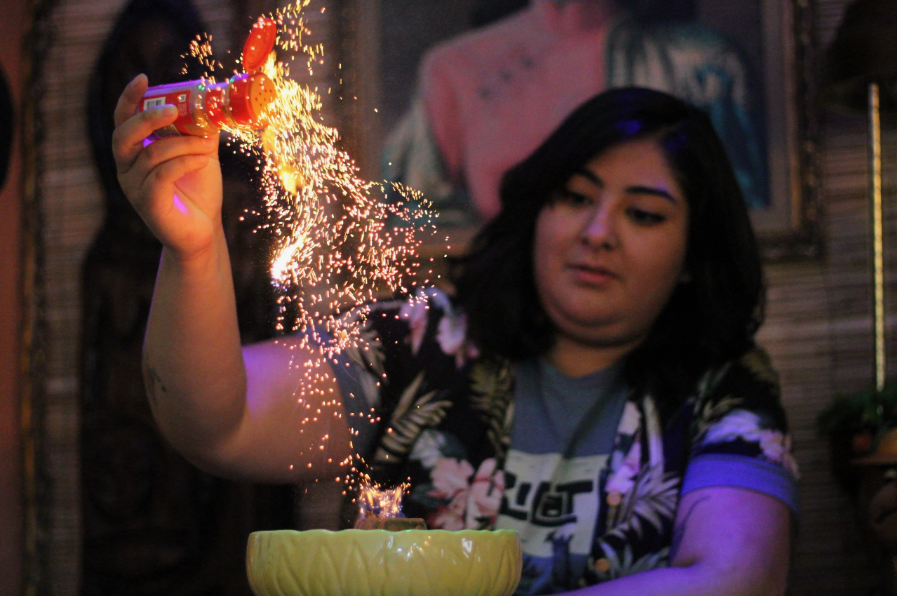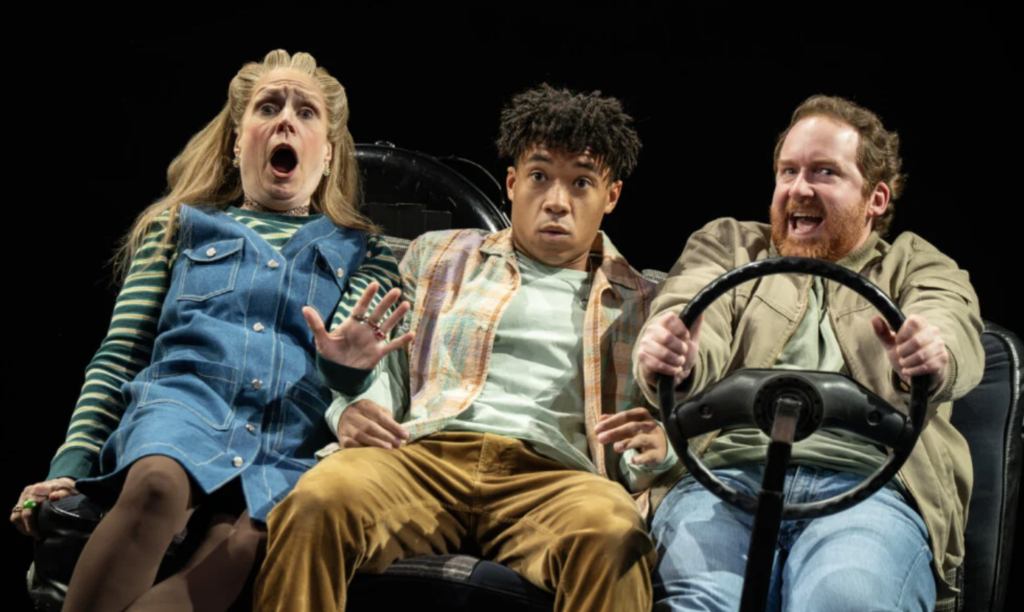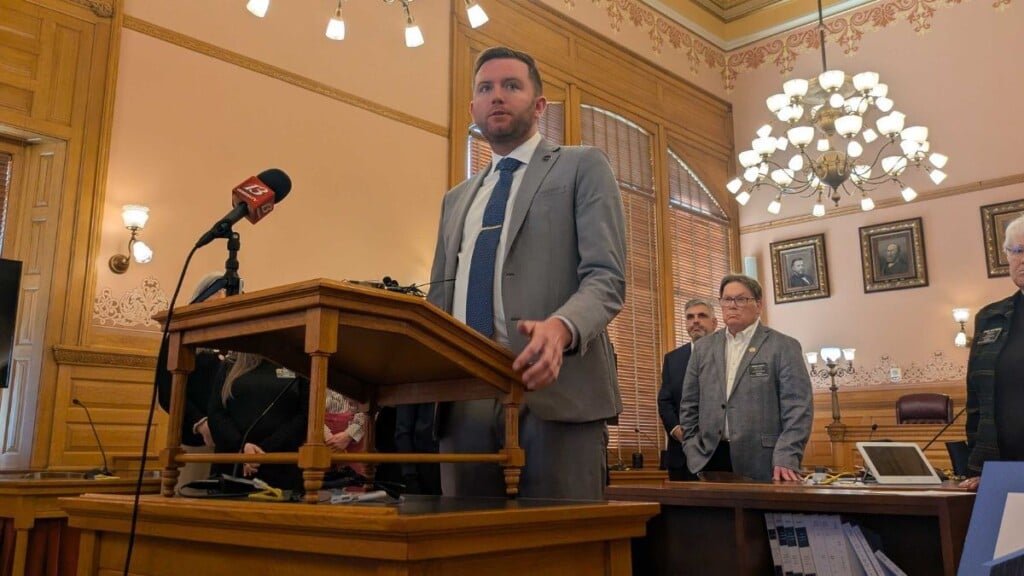Bloody Christmas

In the past month of theatergoing, I’ve been so crammed full of Christmas that I’m weeping peace and pissing myrrh. I’m not quite starting to sympathize with King Herod’s policy of dispatching boys to their deaths, but I’m at least willing to admit that, unlike the Bush administration, the dude was upfront about the whys and wherefores. Generally speaking, I’ve felt an ebb in my good will toward men, and last week, as I anticipated Late Night Theatre’s fa-la-la-la-lating of Stephen King and Brian DePalma’s lurid classic, Carrie, I feared this might also apply toward men dressed as women.
Thank sweet baby Jesus, that didn’t come true. A Scarrie Carrie Christmas Carol is all splatter-paint pleasure, as wild as a virgin birth and twice as bloody, the clear highlight of Late Night’s anniversary season. So many dark delights fill its running time that it’s hard to choose where to start. The star turn from Chadwick Brooks as Carrie, a performance somehow both shrieky and understated? Phil Kinen’s script, which lances the novel and movie while simultaneously borrowing what worked so well in them, so that this send-up is as compelling a story as it is a pop-culture joke machine? The inventive stagecraft, from co-directors Kinen and Ron Megee, that’s funny as hell, yes, but also impressive unleashing it? Or that, somehow, thanks to her own skill and to Mary Traylor and De De DeVille’s merrily garish costumes and wigs, Kimberly Queen is John Travolta?
Thematic duty insists that we start with the blood. It comes in ribbons, and it comes in buckets. Its first flowering is Carrie’s first, too, in that notorious shower scene, deftly re-created here with a gossamer scrim, soft-core synths and the boys of Late Night, in falsies and flesh-colored unitards, swabbing themselves in riotous slow-motion. (For full ’70s verisimilitude, each is fitted with a bush the size of a coonskin cap.) Enter Brooks as Carrie, shy at first, shielding what her mother calls her “dirty pillows.” Soon, stirred by washing, she smiles, opens up, fiddles soapily with her lady parts. In fact, for all the scene’s faux nudity, it’s Brooks’ face that is naked.
So Brooks diddles, and out comes a red ribbon. Horrified, he teases it from his crotch like a magician yanking a hankie from his fist, and his face hits the first of many silent screams, the somehow comic yowl of a soul too tormented for the world.
Many well-staged bloodlettings follow, along with constant pained comedy from Brooks. He fumbles with his hair, speaks in a wavery whisper and howls like a kicked monkey, always nailing — and making funny — each scene’s emotional center. The rest of the cast is uniformly good, with Ray Ettinger as Carrie’s fundamentalist mother a particular treat. And Spencer Brown, as always, is a gorgeous, glam-rock marvel, this time belting “Superstition” and “Live and Let Die.”
What’s most remarkable here is that, despite the jokes and gaudy numbers, the show’s effectiveness lies in its deference. Steeped in real pain, Carrie is King’s richest book and DePalma’s best film, and even the nothing’s-sacred Late Night crowd knows better than to mess much with it.
Instead, they find clever ways to match it, on the cheap, effect for effect. The telekinetic climax is a whirl of inventive special effects, and the hellish after-prom is fiery and beautiful. This trust in the material, coupled with Brooks’ from-the-soul star turn, results in a Late Night show that actually makes us care what happens.




